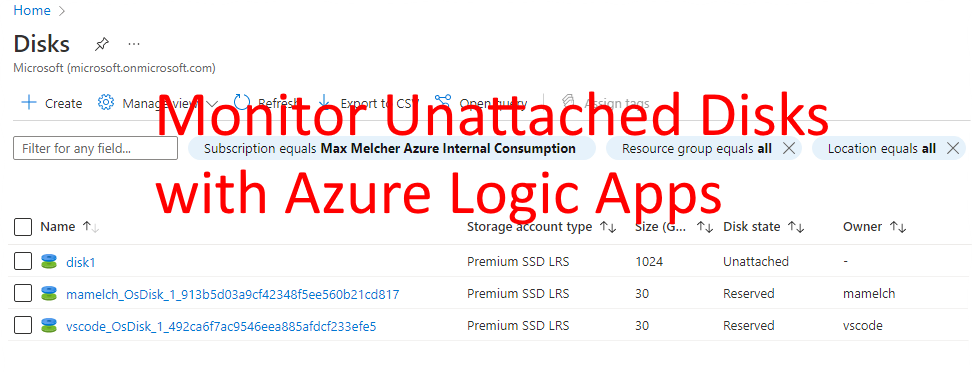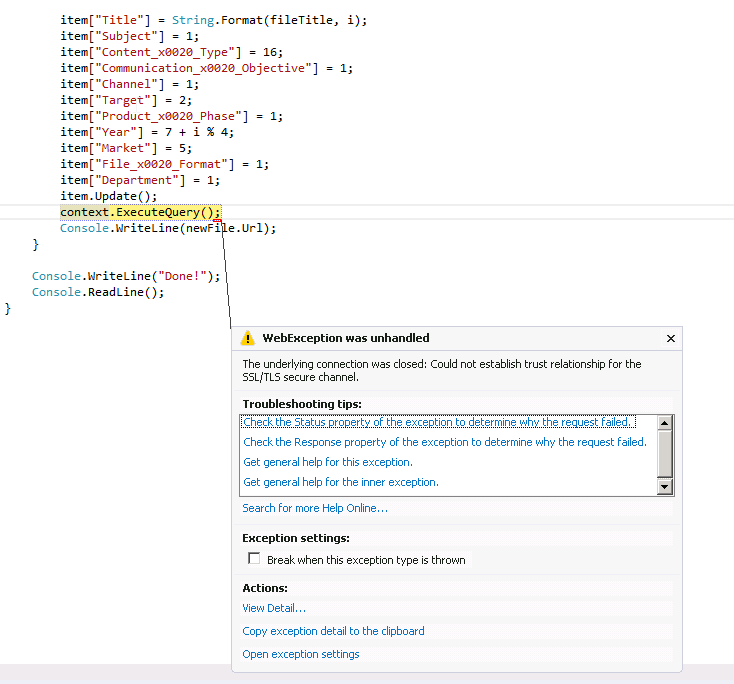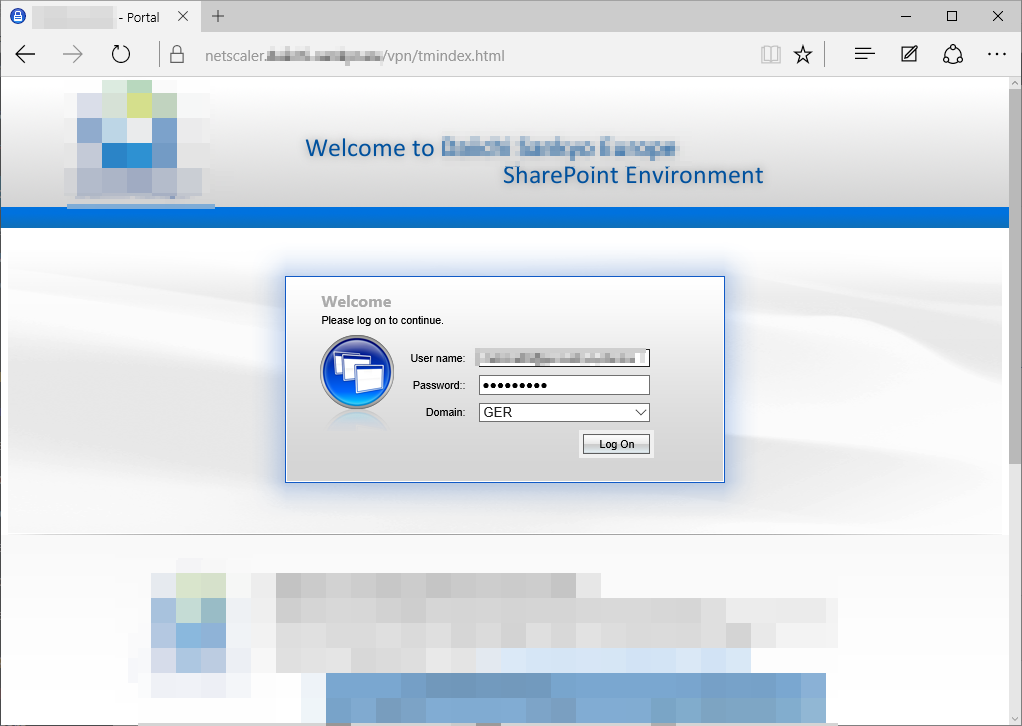I am currently preparing a test dataset for a SharePoint WebPart to see how it scales on a customer SharePoint 2010 environment. The problem I faced here was that the environment is protected by Citrix Netscaler and every CSOM call was ended with a lovely exception.
Problem 1: SSL
The underlying connection was closed: Could not establish trust relationship for the SSL/TLS secure channel.
The client uses https/SSL to secure the channel (good!), but the netscaler load balancer does not provide the correct certificate (I think that could be configured, but that’s not my job here…) and does a redirect to a different domain (**netscaler.**yourdomain.com) for authentication:
So CSOM correctly stops - oldy but goldy, right?
Solution 1
The following snipped accepts all certificates, valid or not. Dont use it in production code, for single use CSOM as in my case it is perfectly acceptable, right? 🙂
//Trust all certificates System.Net.ServicePointManager.ServerCertificateValidationCallback = ((sender, certificate, chain, sslPolicyErrors) => true);
Problem 2: NetScaler Authentication
Once the SSL challenge is accepted, we have to take care of the authentication part. I have done something similar for ADFS were you emulate the authentication (basically you grab the cookie once the authentication happened and reuse it for the SharePoint CSOM).
Fiddler quickly confirmed my assumption - after login via the citrix interface, every call uses cookies for authentication:
On the left you can see the 302 redirect to a different domain. Once I provided the login credentials it sets 4 cookies.
Solution 2
Now lets try to convince the CSOM to use cookies for each request:
ClientContext context = new ClientContext("https://intranet.yourdomain.com"); //open a new context
context.ExecutingWebRequest += context_ExecutingWebRequest; //attach to the event
Once we have the event, we need to set the cookies (maybe you need different ones depending on the configuration):
private static void context_ExecutingWebRequest(object sender, WebRequestEventArgs e)
{
HttpWebRequest webReq = e.WebRequestExecutor.WebRequest;
if (webReq.CookieContainer == null) //no cookies means we are not yet authenticated
{
webReq.CookieContainer = new CookieContainer();
//I copied that calls from fiddler:
//Set-Cookie: NSC_TMAA=ed2b1d8a3dafae7e50e200230cb8c781;Path=/;Domain=yourdomain.com
//Set-Cookie: NSC_TMAS=ed2b1d8a3dafae7e50e200230cb8c781;Secure;Path=/;Domain=yourdomain.com
//Set-Cookie: NSC_CERT=xyz;Path=/;expires=Wednesday, 09-Nov-1999 23:12:40 GMT
//Set-Cookie: NSC_TASS=xyz;Path=/;expires=Wednesday, 09-Nov-1999 23:12:40 GMT
//Host: 123.yourdomain.com - the (sub-)domain must match or the cookies will not be sent!
webReq.CookieContainer.Add(new Cookie("NSC_TMAA", "ed2b1d8a3dafae7e50e200230cb8c781", "/", "123.yourdomain.com"));
webReq.CookieContainer.Add(new Cookie("NSC_TMAS", "ed2b1d8a3dafae7e50e200230cb8c781", "/", "123.yourdomain.com"));
webReq.CookieContainer.Add(new Cookie("NSC_CERT", "xyz", "/", "123.yourdomain.com"));
webReq.CookieContainer.Add(new Cookie("NSC_TASS", "xyz", "/", "123.yourdomain.com"));
}
}
This code is then executed when “ExecuteQuery” is called - and the cookies are set once. With fiddler you can verify the cookies are used then.
The approach above of course only works for a session lifetime - after expiration of the cookies, CSOM can’t connect. The code could be expanded to grab the cookies with the first call or after expiration - but for my test data single purpose code that’s apparently out of scope.
Summary
At first I thought - “well that takes me 10 Minutes to provision 1000 datasets” - took me longer 🙂
Hopefully this post saves somebody some time!








Share this post
Twitter
Facebook
LinkedIn
Email